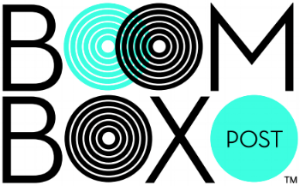In the past, we have published multiple blogs that list classic cartoon sound effects and the emotion they convey to the audience. Our hope is that these lists will help those stuck in their sound editorial from having to sift through their entire sound library looking for the perfect sound.
Viewing entries tagged
glossary
In the past, we have published multiple blogs that list classic cartoon sound effects and the emotion they convey to the audience. Our hope is that these lists will help those stuck in their sound editorial from having to sift through their entire sound library looking for the perfect sound.
Several years ago, we created multiple blogs with keywords to help you search your sound library and find the desired effects. This year, we have combined those blogs into one comprehensive sound effects glossary, adding more key terms to assist with your project. Hopefully, this will make it easier to find all the correct sound effects you need!
Last year, we published two blogs that listed classic cartoon sound effects and the emotion they convey to the audience. In those posts, we outlined the toony sounds we associate with happiness, anger, sadness, humor, scared, disgust, love, and boredom. Toon sound effects have been provoking emotion for decades. With so many classic toon sounds to choose from, how does one know which to use? Our hope is these blog posts help those stuck in their sound editorial from having to sift through their entire sound library looking for the perfect sound. You can read part one HERE and part two HERE!
At Boom Box Post, since we focus in sound for animation, I thought it would be helpful to create a list of classic toon sound effects and the emotion typically associated with them. In this post, we will be focusing on the following: happiness, anger, sadness, and humor.
One of our most popular blog series is Glossary of Sound Effects, of which we have done 3 parts. On the original post, we get a ton of questions asking what keywords should be used when trying to find very specific sounds. I decided to relay a few of these questions to our editorial team. I’m very curious what buzzwords they will recommend.
In 2016, we did two very popular Glossary of Sound Effects posts. Learning keywords to use for your library can save you a ton of time. I thought it would be helpful to do a third post with a ton of new terms!
Our first Glossary of Sound Effects post was so popular we decided it would be fun to expand on it. This time around we not only included more specific search terms, but also a handful of modifiers.
One of the major hurdles of becoming a sound effects editor is learning your library. This means knowing what keywords to search in a given situation as well as building up a mental catalogue of "go-to" sounds.
While it is always a good idea to start by looking at the picture and then thinking of descriptive words to search, it helps if you know which words will yield the best results. This is where onomatopoeia enters the scene. Onomatopoeia is defined as the formation of a word from a sound associated with what is named (e.g. cuckoo, sizzle). Following is a beginner's guide to onomatopoeic sound effects search words. Some of these terms can be found in any dictionary, and some are unique to sound effect library naming conventions.










